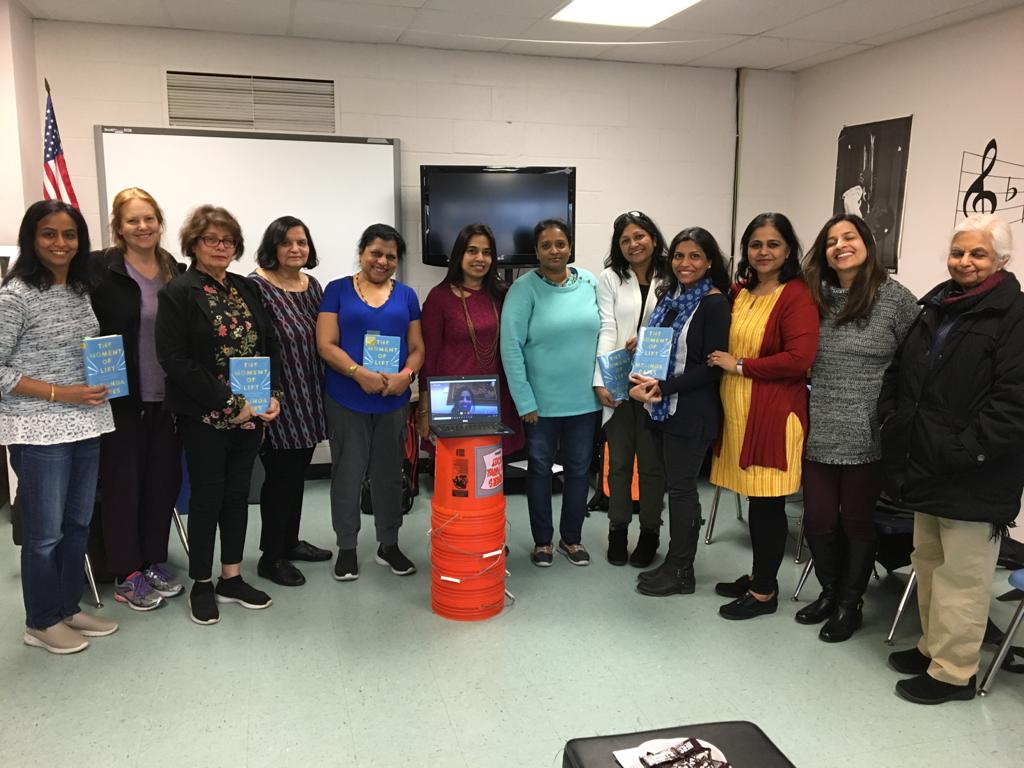By Kristin Pepper
In December 2019, our book club discussed Melinda Gates’ book, Moment of Lift, and experienced firsthand Melinda’s process ourselves. One of our members knew that the book mentioned female genital cutting (FGC), and asked Mariya Taher, an expert on FGC, to join our discussion using Skype. Just as Melinda looked into how to empower women and grew to understand women’s issues in a whole new way, our book club read a book about how women can help and learned many facets of a problem most of us barely knew existed.
Mariya presented some facts to help us understand that FGC happens everywhere, including in the United States. We also had a member who knew that girls in our own town were being cut. Our book club is made up of mothers who live in an upper middle class, educated area in which all parents want the very best education for girls and boys alike. Most of our members had not realized girls, both Christian and Muslim living in the US, were being cut, much less in our own town. We were shocked and had an especially hard time understanding why a woman would be involved in cutting a girl. When discussing Moment of Lift, we kept coming back to why women perpetuate any customs that hurt other women. The story of girls tricked into child marriage made us angry at the mothers. Mariya showed us a video of a woman who used to hold down girls to be cut but later helped her community to reject FGC. Some of us had trouble forgiving that woman despite her courage and activism.
We had followed Melinda Gates into discovering a problem happening in our area, as well as globally. We had to understand why FGC exists, how damaging it was to girls, and what we could do about it. Mariya helped us understand some of the social, medical and educational roots of the problem, as well as its true danger. She showed us videos of women describing the effect cutting had on their lives, but we also learned that not all women had problems from cutting. We learned the different methods of cutting.
We tried to understand why educated women who clearly loved their children would have their girls cut. Mariya and the other book club member were invaluable in sharing their knowledge with us, just as the people who were closest to the problems were most valuable to Melinda. They helped us understand the loss a woman and her entire family faces if she speaks out against FGC in a community that accepts it. She and her family may no longer be valued members of the community. They may still go to their places of worship, but people may no longer talk to them, and they may no longer be invited to community gatherings. The ostracism and loss of support they have felt their whole lives is an extreme deterrent.
This tied into Melinda’s journey of speaking out in support of birth control, despite being Catholic. She felt she had to publicly support family planning in order to have any impact on communities. It took courage to talk out against something her faith supported, and she was worried about wading into politically charged waters.
We spoke about what the Gates Foundation did in one community to stop cutting, but to the members who understood FGC best, it was complicated. There might be a lesson in the MeToo movement. For years, women kept quiet about workplace sexual harassment, but then the MeToo movement supported speaking up and the society began to stop blaming the victims. It was very important that the women who spoke up were believed, welcomed and told they were brave. We need to support those who do speak up about FGC. Those brave women could break the notion that FGC does not hurt women’s health, and they could inspire their friends to speak out. Women who have been cut speaking up and denouncing the practice would have a powerful effect on their own communities, but they will need to be supported by people who understand what a loss they face when they raise their voices. Melinda Gates’ positive message that change is possible when women are given the right support to lift was a hopeful message that made a strong impression on our book club.

